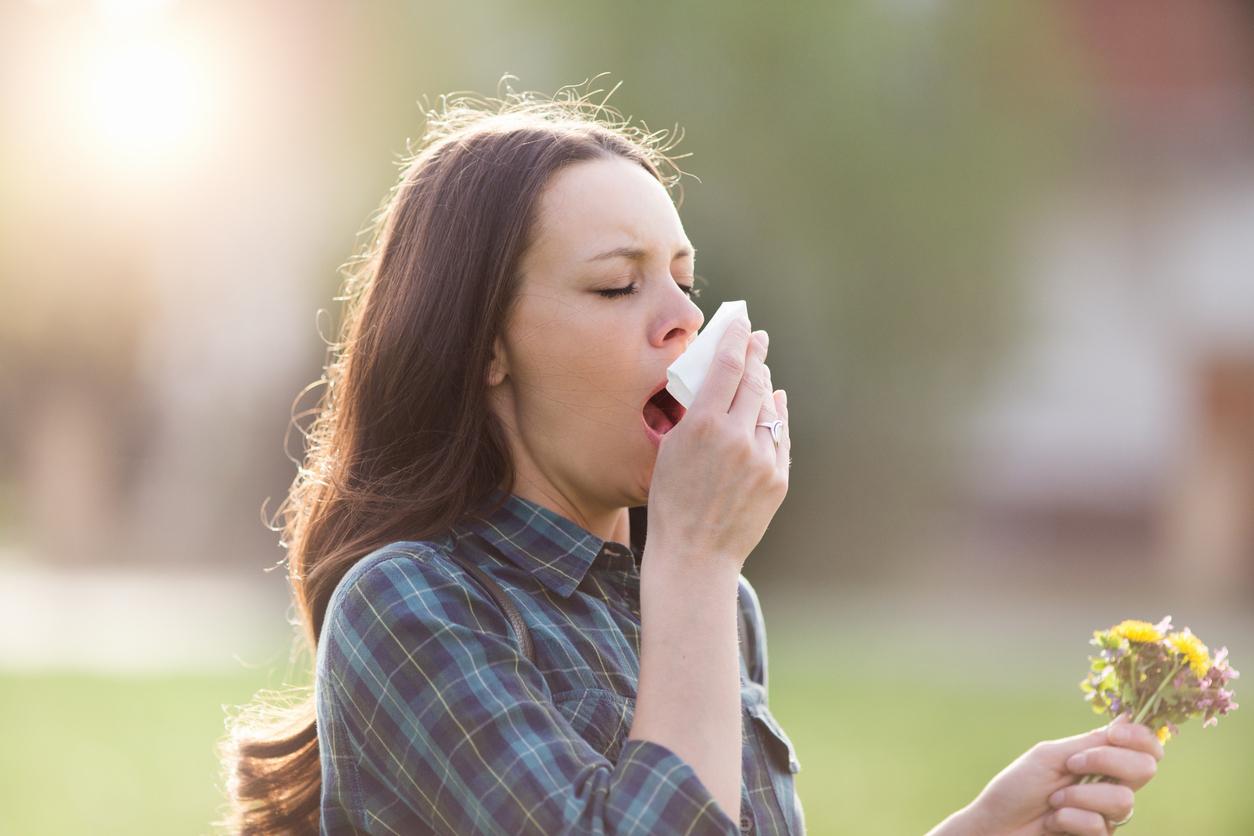The association 60 million consumers compared more than 20 antiallergic products sold without a prescription.

- Many allergy medications and products are available without a prescription.
- According to the association 60 million consumers, some of these products may present risks.
- The most effective products are antihistamine drugs.
The arrival of spring is rather cheerful, except for people with allergies! Currently, more than 32 departments are classified red for pollen, by the national aerobiological monitoring network. Multiple products are available in pharmacies to relieve symptoms. According to 60 million consumer magazine, certain dietary supplements and over-the-counter medications may pose health risks.
Antiallergic: which products have been tested by 60 million consumers?
“Medicines, supplements food, medical devices, locally or generally, partners, or not… The offer is plethoric”, recalls the association in its April issue. In total, the magazine’s team tested 22 products, among the best-selling in pharmacies: 11 taken orally, 7 for the nose and 4 for the eyes. “Based on the state of knowledge, and what has been published, we have noted the effectiveness of the products, the risks and the contraindications as well as the quality of the labeling and the information made available to consumers.“, develops the magazine.
Anti-allergy products: inconsistencies in labeling
“The labeling sometimes presents curiosities: Humex Allergie indicates loratadine from 12 years against 6 years for Mylan Conseil, note the article. In addition, the active ingredients sold in self-medication often have similar forms on prescription. In these cases, the main difference is the price: non-prescription products are sold at an open price. With regard to food supplements, these professionals observe that brands play on words. Legally, it is not possible to claim their therapeutic effects, so the manufacturers use subterfuge: some are called “Widem” Or “Allergy“, or present a visual reminiscent of allergies.
Antiallergics: what are the health risks of certain products?
However, 60 million consumers explain that certain antiallergics can present health risks. “This is the case for products containing propolis, royal jelly or honey (Polanine and Allargem in our selection): they are not recommended for people allergic to pollen. The National Health Security Agency (ANSES) recalled in 2018: hive products can contain pollen and therefore cause allergies.”
It is also necessary to be vigilant with antiallergics based on essential oils, because some people are allergic to them. As for the Imuxesal probotioque, it contains vitamin D, which can expose to a risk of overdose in the event of parallel treatment. “The information is more superficial concerning food supplements: no notice in the HDNC product (and no indication of the name of the product on the blister of the capsules); no clear indication of age on Allerus… yet with 35% alcohol volume”, raises 60 million consumers.
Finally, Humex hay fever, a beclometasone-based corticosteroid, can cause several side effects: irritation, nosebleed and more serious symptoms in the event of an overdose. “Reserve rather for important symptoms and prefer Cromorhinol for moderate forms”warns the association.
Allergies: how to limit symptoms by avoiding risky products?
According to his report, the products with the highest levels of evidence of efficacy are antihistamine drugs, such as Humex Allergy loratadine or Zyrtecset. 60 million consumers recall that there are preventive measures to limit the risk of allergy: “wash your hair before going to sleep, air the rooms before sunrise and after sunset, garden with a mask and goggles”. In case of severe and persistent symptoms, it is recommended to consult a doctor who can offer a desensitization treatment.


















